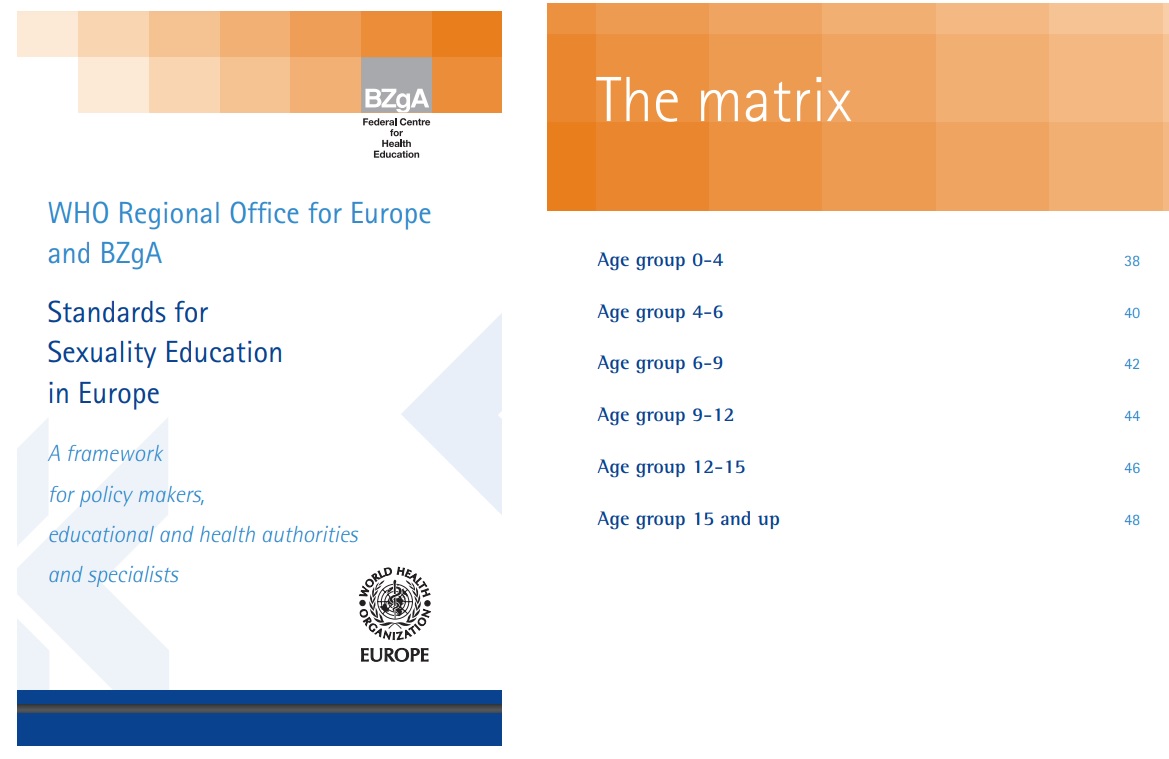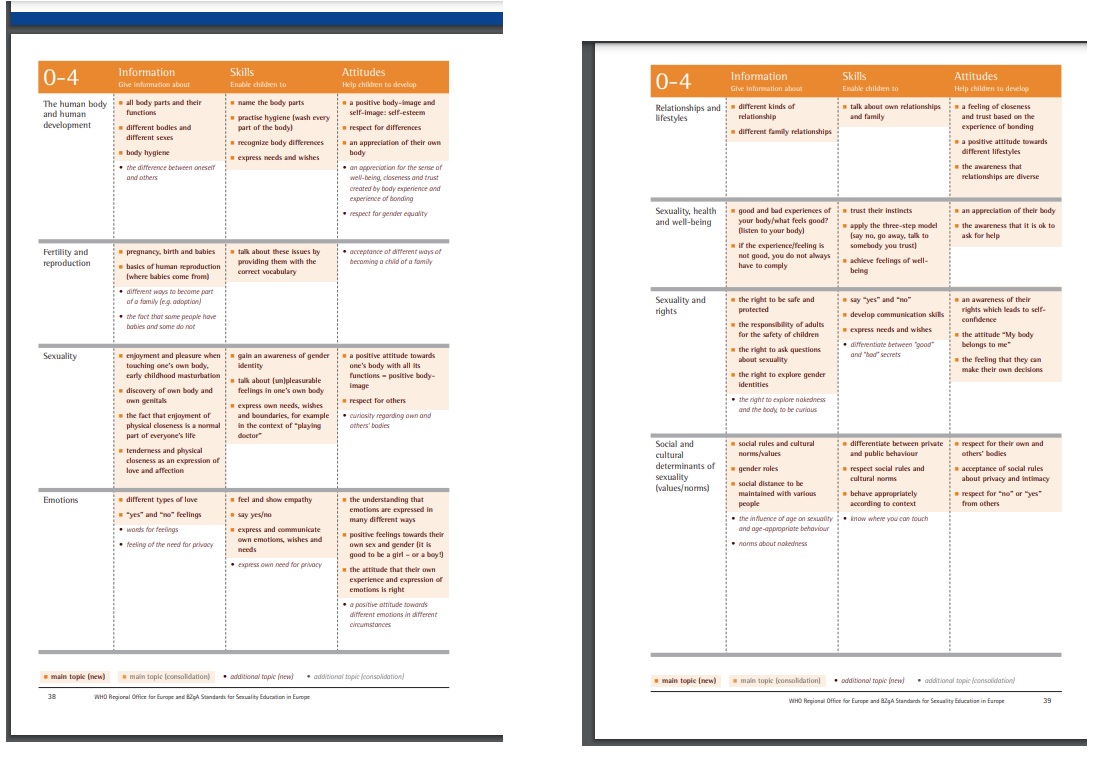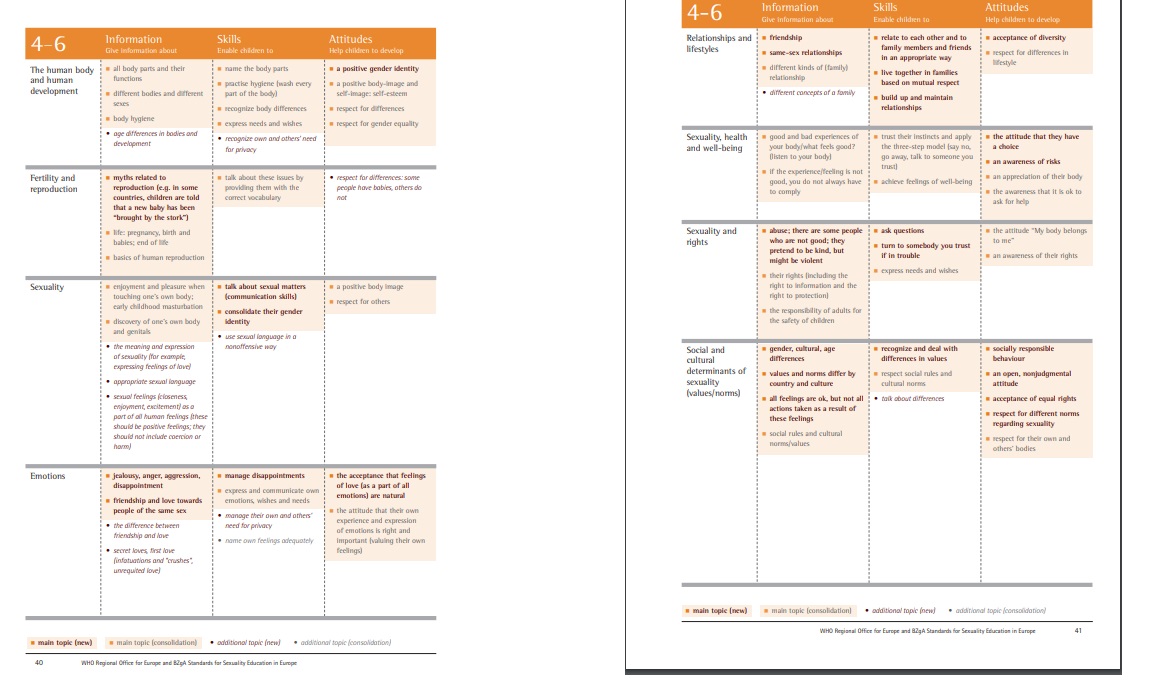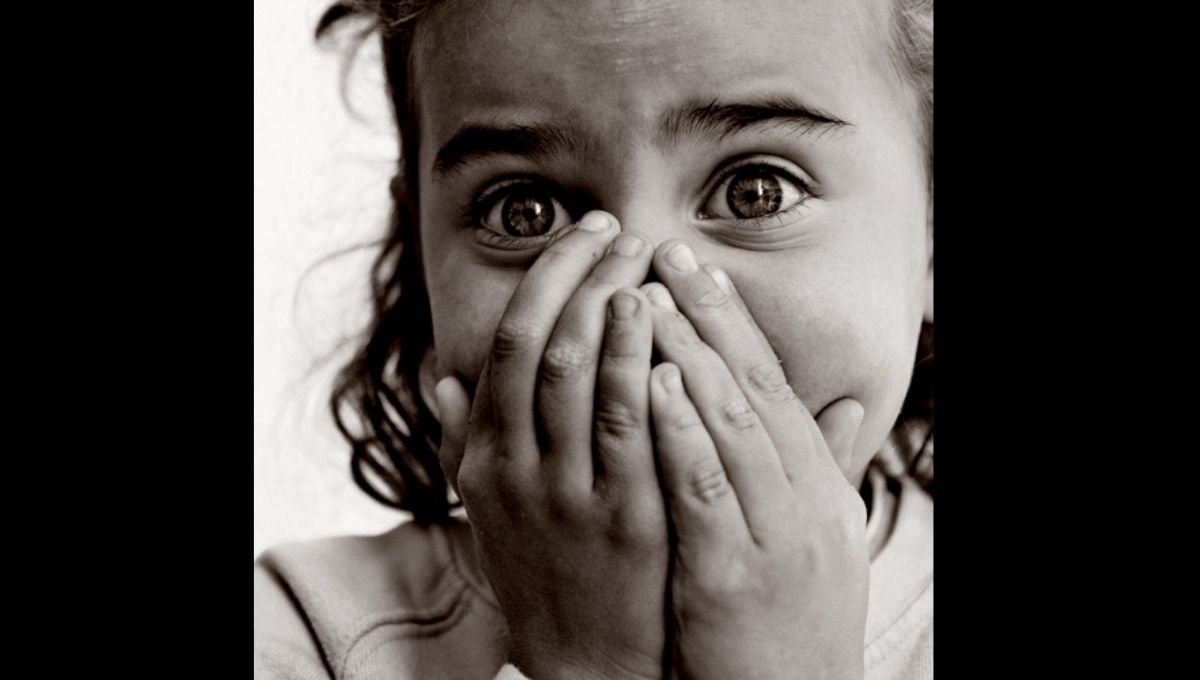The World Health Organization (WHO) is once again at the center of controversy over the sexualization of children — this time involving a document it published in 2010, which presents recommended and “holistic” standards for sexuality education.
Standards for Sexuality Education in Europe recommends that instructions about masturbation and sexuality be taught to children between the ages of 0-4. This age recommendation angered Laura Anne Jones MS, Shadow Minister for Education and member of the Welsh Parliament for South Wales East.
Jones reportedly called for the WHO to “rescind the advice immediately,” asking that the Welsh government “distance themselves” from the “frankly disturbing” WHO guidance.
“We must stop this pushing of harmful gender ideology into sex education in Wales and the UK, with immediate effect.” But a WHO spokesman said it stands by its guidance, telling the media outlet that “Our guidelines reflect established psychological facts based on decades of research,” Jones told the Telegraph.
What does the document say?
The document states that “Children and young people are crucial to the improvement of sexual health in general. They need to know about sexuality in terms of both risk and enrichment, in order to develop a positive and responsible attitude towards it.” It also stresses the need for informal (parents) as well as formal (professionals) sex education and focuses on “school-based sexuality education.”
It claims that “A holistic approach based on an understanding of sexuality as an area of human potential helps children and young people to develop essential skills to enable them to self-determine their sexuality and their relationships at the various developmental stages. It supports them in becoming more empowered in order to live out their sexuality and their partnerships in a fulfilling and responsible manner. These skills are also essential for protecting themselves from possible risks,” it states in part.
Sexuality from birth
“In this document, it was deliberately decided to call for an approach in which sexuality education starts from birth. From birth, babies learn the value and pleasure of bodily contact, warmth and intimacy. Soon after that, they learn what is ‘clean’ and what is ‘dirty,'” the document reads.
“Later, they learn the difference between male and female, and between intimates and strangers. The point is that, from birth, parents in particular send messages to their children that relate to the human body and intimacy. In other words, they are engaging in sexuality education,” it states.
“The development of sexual behaviour, feelings and cognitions begins in the womb and continues throughout a person’s lifetime. Precursors of later sexual perception, such as the ability to enjoy physical contact, are present from birth,” the document later adds.
The document break-down for the “sexual development” of children includes the following:
- “Children’s sexual development starts at birth.”
- “Toddlers learn that they are boys or girls (they develop their gender identity); Toddlers start deliberately touching their genitals because it makes them feel good.”
- 4-6 year-olds learn “that adults disapprove if they expose themselves in public and touch themselves or someone else. This makes them less likely to walk around in the nude in public and touch their genitals.” This age group is “Exploring their own and other people’s bodies […] expressed more in the context of playing (‘sexual games’): children play ‘mummies and daddies’ and also ‘doctors and nurses’, at first openly but later often in secret, because they learn that being naked in public is not allowed.”
- “From about the age of 10, children become more interested in adult sexuality. They fantasise more about sexuality and hear and see all sorts of things in books, on TV and on the internet, which arouses their curiosity. Nevertheless, their response may be prudish or offhand if you try to talk to them about sexuality.”
“It is crucial to emphasize in this context that sexuality comprises far more than the sexual act, and that the sexuality of a child is not to be confused with the sexuality of an adult. The Standards are based on a broad understanding of the term ‘sexuality’, which acknowledges that topics like emotions, building relationships, protecting privacy, respecting boundaries, expressing wishes, experiencing closeness, etc. are an integral part of sexuality. These dimensions of sexuality become relevant long before a child matures into adulthood,” a separate FAQ document published at the WHO website clarifies.
Standards for Sexuality Education in Europe ‘Matrix’
The document includes a “matrix” of recommendations by age groups and specifies that the “topics highlighted in orange are main topics or minimal standards that need to be covered by sexuality education. Topics that are not highlighted are additional, their introduction into curriculums is optional,” the document states.

WHO Standards for Sexuality Education in Europe
Ages 0-4 (image below): the ‘matrix’ suggests that the topics of “pregnancy, birth and babies basics of human reproduction (where babies come from)” be discussed with this age group.
In addition, the document suggests that 0-4 year old children be provided “information” about sexual “enjoyment and pleasure when touching one’s own body, early childhood masturbation; discovery of own body and own genitals; the fact that enjoyment of physical closeness is a normal part of everyone’s life and tenderness and physical closeness as an expression of love and affection.”
Under skills, the matrix for the 0-4 year-old includes the recommendation that children “gain an awareness of gender; identity; talk about (un)pleasurable feelings in one’s own body; and express own needs, wishes and boundaries, for example in the context of ‘playing doctor.’”
In addition, the guidance for 0-4 recommends discussing “curiosity regarding own and others‘ bodies,” as an “optional” topic under “attitudes.”
Under “sexuality and rights” the document recommends talking to 0-4-year-old kids about “the right to be safe and protected; the responsibility of adults for the safety of children; the right to ask questions about sexuality; and the right to explore gender identities.” And the “optional” topic includes “the right to explore nakedness and the body, to be curious.”

WHO Standards for Sexuality Education in Europe age 4
The 4-6 year-old matrix recommends discussions about the “basics of human reproduction” as well as “enjoyment and pleasure when touching one’s own body; early childhood masturbation; and discovery of one’s own body and genitals.” As well as “talk about sexual matters (communication skills); and consolidate their gender identity.”
The guidance also recommends the 4-6-year-old matrix cover “jealousy, anger, aggression, disappointment; friendship and love towards people of the same sex; the difference between friendship and love; secret loves, first love (infatuations and ‘crushes’, unrequited love).”
It goes on to recommend talking to children between the ages of 4-6 about “friendship; same-sex relationships; different kinds of (family) relationship; different concepts of a family,” and the “acceptance of diversity” as well as “respect for different norms regarding sexuality.”

WHO Standards for Sexuality Education in Europe age 4-6
Between 6-9 years, the document recommends telling children about “body changes, menstruation, ejaculation, individual variation in development over time; (biological) differences between men and women (internal and external),” as well as “choices about parenthood and pregnancy, infertility, adoption; the basic idea of contraception (it is possible to plan and decide about your family); and different methods of conception.”
And, of course, “enjoyment and pleasure when touching one’s own body (masturbation/selfstimulation); appropriate sexual language.”
From 12-15 years of age, the document recommends “personal attitudes (norms and values) about (young) motherhood and fatherhood, contraception, abortion and adoption;” and “‘sexual rights, as defined by IPPF and by WAS;” as well as “acknowledge sexual rights for oneself and others.” IPPF stands for the International Planned Parenthood Federation and WAS stands for the World Association for Sexual Health (WAS).
The WHO defended the recommendations regarding masturbation and encouraging young kids to explore sexuality by writing in a separate document: “This information is addressed to professionals (e.g. teachers, including kindergarten teachers), who need to be informed about the variety of normal phenomena in the psychosexual development of children” and that “Without such knowledge, there is a risk that professionals will react in inappropriate ways, possibly harming the child and/or hindering his/her future healthy development.”
But some, like the UK Government, are not buying what the WHO is selling and have “rejected the guidance being introduced to children in Britain,” the UK Guardian reported.
The media outlet cited a UK government spokesperson who allegedly insisted that ‘The UK Government does not recognise this WHO guidance and we don’t agree with its recommendations. We have not distributed or promoted it to schools.”








